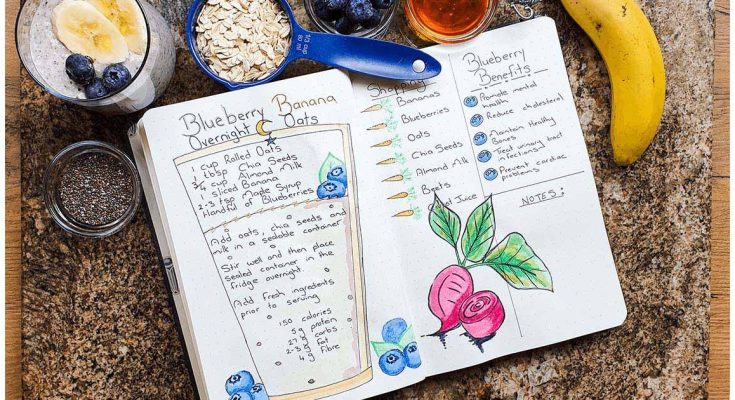Journaling has long been associated with self-reflection, creativity, and emotional release, but its role in health is increasingly recognized as both practical and transformative. When approached intentionally, journaling becomes more than just a record of daily events—it evolves into a powerful tool for awareness, accountability, and growth. For professionals navigating busy schedules, constant demands, and the challenges of maintaining well-being, journaling offers a structured yet flexible way to engage with health in a manner that is both personal and sustainable. It is not about writing perfect entries or following rigid templates, but about creating a space where progress, setbacks, and insights can be tracked and understood over time.
One of the greatest benefits of journaling for health is the clarity it provides. Many people operate on autopilot, moving from one task to the next without pausing to consider how their choices affect their well-being. Fatigue, stress, or recurring health issues may seem mysterious until they are observed over days or weeks. Journaling allows patterns to emerge. For example, a professional might notice that late-night work emails correlate with poor sleep quality, or that skipping breakfast consistently leads to afternoon energy crashes. By putting these observations on paper, vague impressions turn into concrete connections, making it easier to identify areas for change.
Beyond identifying patterns, journaling also fosters accountability. Writing down intentions creates a sense of commitment that is often stronger than unspoken goals. A health journal does not need to be a detailed log of every calorie or step taken; instead, it can serve as a consistent checkpoint. Simply recording a daily reflection on how you felt, what you ate, or whether you exercised can reinforce the idea that health is an ongoing priority. This gentle accountability helps sustain momentum, especially on days when motivation wanes. Much like financial tracking helps businesses stay aligned with budgets, journaling helps individuals stay aligned with their health objectives.
Journaling also provides an outlet for processing the emotional side of health. Professionals often approach wellness as a set of tasks to complete, but emotions play a significant role in shaping habits. Stress, frustration, and self-criticism can easily undermine progress if left unacknowledged. Writing about these experiences offers perspective, transforming them from internal pressures into external reflections that can be examined more objectively. A frustrating day of missed workouts or unhealthy meals, when recorded in a journal, becomes an opportunity for self-compassion and problem-solving rather than a reason to give up. This shift in perspective reduces guilt and helps maintain consistency, reinforcing resilience in the long run.
Another powerful way journaling supports a health journey is through the cultivation of gratitude and positivity. Recording even small wins—such as having more energy during a meeting, enjoying a nourishing meal, or taking a short walk—creates a mindset that recognizes progress rather than only focusing on shortcomings. This not only motivates continued effort but also enhances overall well-being, as research shows that gratitude practices improve mental health and resilience. Professionals who often measure success by large achievements can benefit from acknowledging these smaller, daily victories, which collectively build momentum and satisfaction.
The flexibility of journaling makes it adaptable to different lifestyles and preferences. Some may prefer structured prompts, such as noting what went well each day or identifying one area for improvement. Others may lean toward free-form writing, using the page as a space for reflection and exploration. Technology has expanded the possibilities as well, with digital journals, apps, or even voice notes serving as modern alternatives to pen and paper. The format matters less than the consistency; what counts is developing a practice that feels natural and sustainable. For a busy professional, jotting down a few sentences on a phone during a commute may be as effective as a longer handwritten entry at night.
Journaling also facilitates long-term reflection, which is essential for growth. Looking back at entries from weeks or months prior reveals how far you have come and what challenges have been overcome. This retrospective view provides encouragement during plateaus or setbacks, reminding you that progress is rarely linear. For example, reading an entry about struggling with early morning workouts may highlight how much easier they feel today, underscoring resilience and improvement. Just as businesses conduct quarterly reviews to assess performance, individuals can use their journals as a way to evaluate health strategies, celebrate progress, and make informed adjustments.
Importantly, journaling does not need to be another source of stress. Too many people avoid the practice because they imagine it requires long, polished entries. In reality, even a few sentences can carry significant impact. A quick note about how energized you felt after a particular meal, or how a walk helped ease tension, provides meaningful data and insight. The goal is not to create a literary record but to engage with your health in a way that feels supportive and constructive. This low-pressure approach ensures that journaling enhances well-being rather than becoming another obligation.
Ultimately, journaling is about building a relationship with your own health. It creates a dialogue between intention and action, helping you understand not just what you are doing, but how it affects your body and mind. For professionals seeking to balance career demands with personal wellness, journaling offers a structured yet flexible method to track progress, uncover insights, and maintain motivation. It turns abstract goals into tangible actions, reinforces accountability, and provides the space to acknowledge both victories and challenges. In this way, journaling is not merely a tool for documentation but a companion on the journey toward healthier, more sustainable living.



